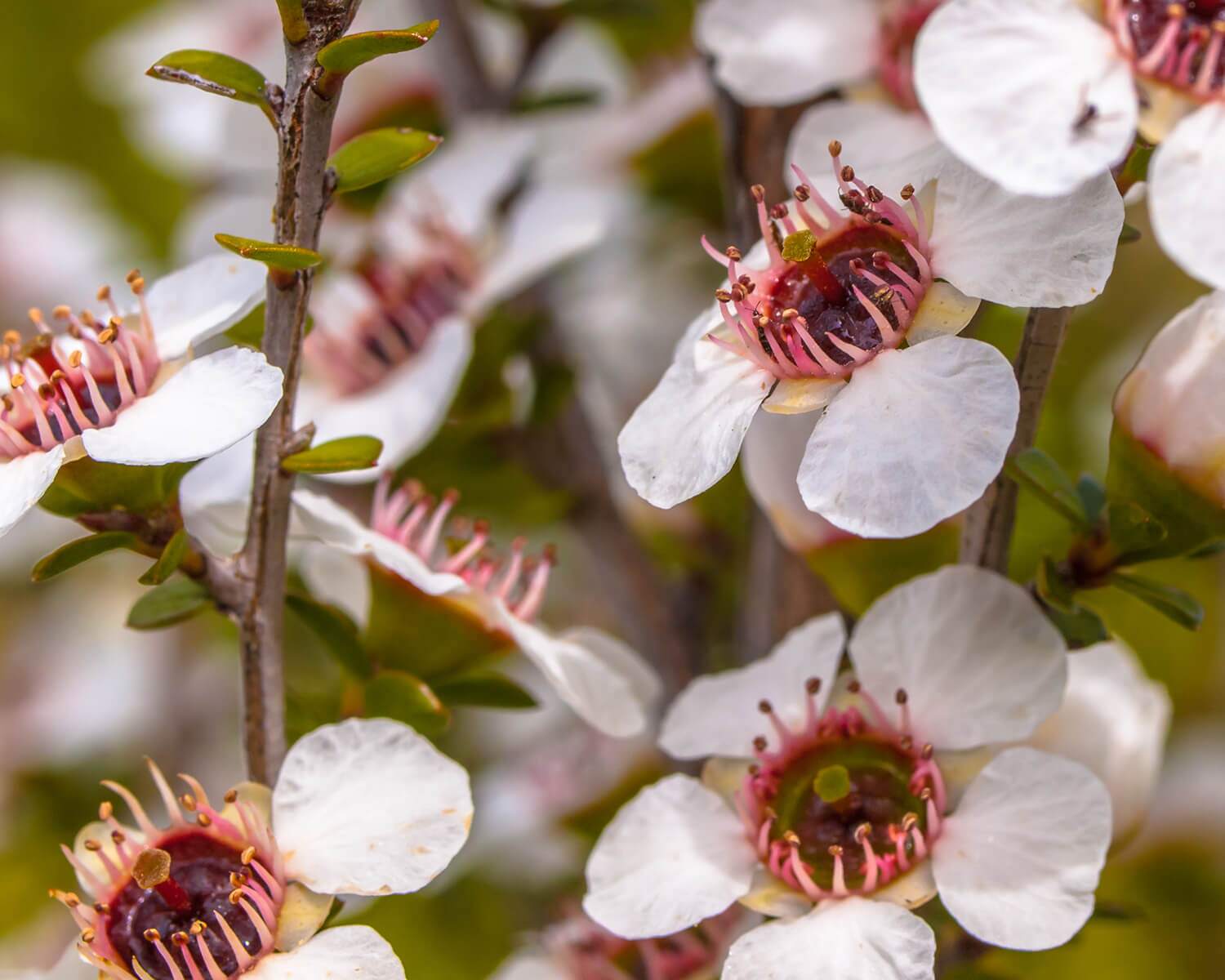Experts are expressing concern about the rise in drug-resistant bacterial infections, which already claim the lives of tens of thousands of people each year and are predicted to rise in the upcoming years.
The outstanding antibacterial and wound-healing qualities of Manuka honey are world-famous. Is its antibacterial power potent enough to aid in treating lung infections? Absolutely!
In this post, we'll talk about how Manuka honey can help handle severe lung infections. Let's start!
A bit about Manuka honey

Manuka honey is a monofloral honey produced by honeybees from the nectar of the New Zealand native Manuka bush. It has a sweet, flowery, and slightly earthy flavor. Manuka honey is more flavorful and deeper in color than regular honey.
It must be accredited by New Zealand's Ministry of Primary Industries to be referred to as Manuka honey. Compared to regular honey, Manuka honey has more methylglyoxal and bioactive compounds, giving the honey its extraordinary antibacterial capabilities.
Humans have long utilized Manuka honey for healing purposes, but science has only lately caught up. However, scientists are still stunned by Manuka honey's enormous health advantages. Manuka honey's benefits for lung infection are discussed below.
Manuka honey and severe lung infections
Patients with cystic fibrosis or bronchiectasis frequently experience infections like M. abscessus infection, which has high antibiotic resistance.
Such individuals have a genetic abnormality that makes it difficult for them to remove mucus from their lungs. They develop several serious lung infections due to mucus buildup.
As there are numerous strains of such pathogenic bacteria, each of which has different antibiotic resistance, treating it is challenging. Any organ in our body can become infected by this aggressive bacteria, leading to recurrent skin and soft tissue infections.
The typical course of treatment in such cases includes amikacin and a cocktail of other antibiotics for 12 months, along with antimicrobial chemotherapy. Successful treatment rates are still only up to 50% at best. The sad part is that the patients must endure nausea, vomiting, potential hearing loss, liver damage, decreased white blood cells, and other blood components involved in clotting.
Also, in times of emergencies, patients are unable to receive a lung transplant due to their persisting Infection. The new strategy of using manuka honey for lung infection would help eradicate a highly treatment-resistant infection and reduce the harmful effects of the earlier treatments.
Researchers at Aston University recently found that adding Manuka honey to nebulized antibiotic therapy could successfully treat respiratory infections caused by Mycobacterium abscessus, providing a novel new therapeutic approach for M. abscessus management.
This novel method of treating M. abscessus by combining the antibiotic amikacin with Manuka honey was reported in the journal Microbiology. It was shown that using the Manuka honey combination led to an eight-fold decrease in antibiotic dosage and its subsequent side effects.
Is manuka honey good for bronchiectasis? Yes,! In addition to this, Manuka honey has been shown to aid in the treatment of oral mucositis in cancer patients, children's upper respiratory infection-related coughs, and post-tonsillectomy pain management.
What makes Manuka honey effective?

The flower nectar of the Manuka plant contains the precursor molecule of Methylglyoxal - dihydroxyacetone, which has no inherent antibacterial properties. A portion of the dihydroxyacetone in the honey will change to Methylglyoxal as it ages, gradually raising the concentration of Methylglyoxal.
Methylglyoxal concentrations in Manuka honey can reach up to 800 milligrams per kilogram, compared to only 5 milligrams in regular honey. Methylglyoxal has unmatched natural antimicrobial properties and plays a significant role in fighting off lung infections.
Another active ingredient in Manuka honey is leptosperin. Leptosperin, a naturally occurring molecule that can only be detected in the nectar of Manuka plants, can be used to verify the legitimacy of Manuka honey. It has been proven to fight against a wide range of respiratory tract pathogens.
Aggressive pathogens that infect the respiratory system often build biofilms that exhibit increased antimicrobial tolerance. It is a supplementary defensive tactic in addition to the inherent and acquired antimicrobial resistance mechanisms they already have.
Therefore, even with vigorous antibiotic therapy, it is not always possible to eradicate such pathogens from the patient's lungs. Manuka has been shown through scientific research to break up the biofilms of numerous pathogens, which promotes the treatment of infections.
Nitric oxide is an essential immune effector with strong antibacterial properties, but reaching therapeutic doses is difficult due to its short half-life. Manuka honey also causes a constant conversion of nitrite to NO, which, too, helps destroy microbial biofilms.
A study found that all manuka-related treatments successfully killed M. abscessus. Still, whole honey outperformed isolated Methylglyoxal in terms of effectiveness, indicating the honey may contain additional active ingredients that can assist in combating the bacteria's mechanisms for developing drug resistance.
Also Read: Supplements That Can Help Fight Common Cold in Winter
Also Read: Top 3 Everyday Values of FREZZOR Manuka Honey UAF1000+
How to take manuka honey for a chest infection?
You can take Manuka honey orally or include it in the nebulization liquid. Adding honey to your steaming water will also be helpful. When taken orally, it assists in reducing the harmful effects of free radicals and inflammation. It will also enhance the immune system. Manuka honey dosage differs in different conditions. Have a word with a professional to discuss your dosage.
The danger of antimicrobial resistance to human health has sparked research into intricate, natural compounds with antibacterial activity. Manuka honey is so far the best natural antimicrobial agent identified with no side effects at all.
Hope the article was helpful to you. If you want recommendations for authentic Manuka honey brands, comment below!

